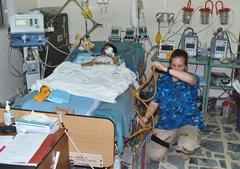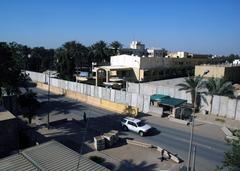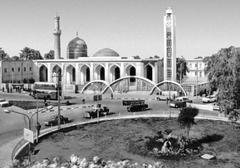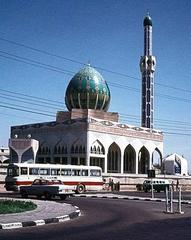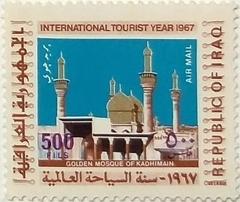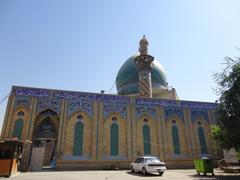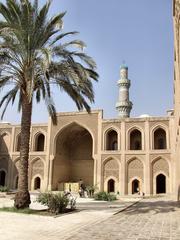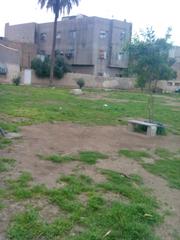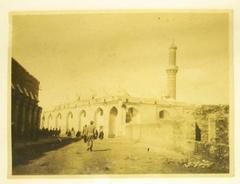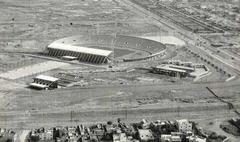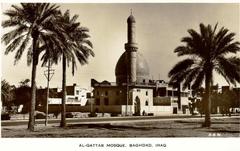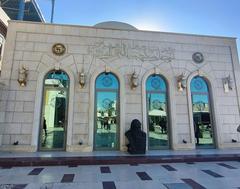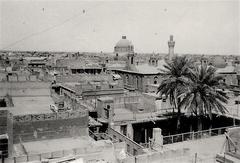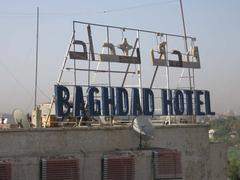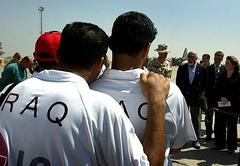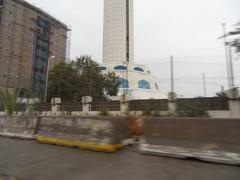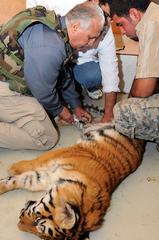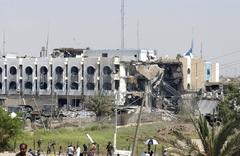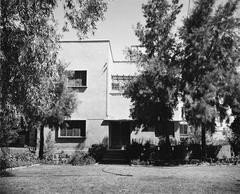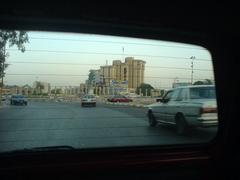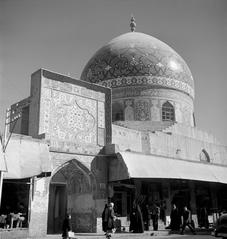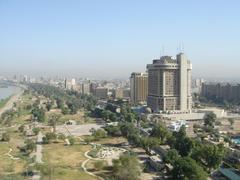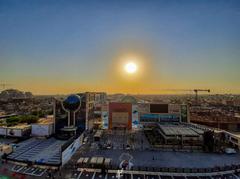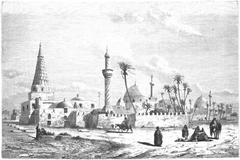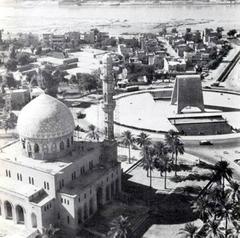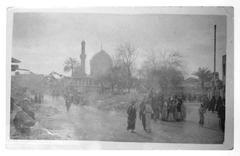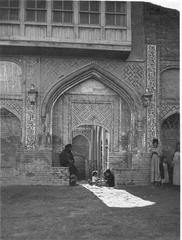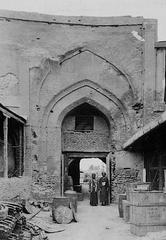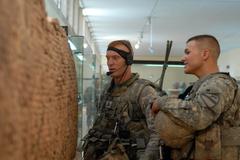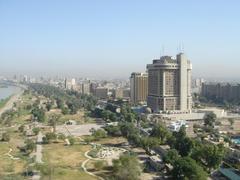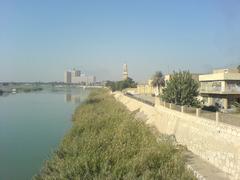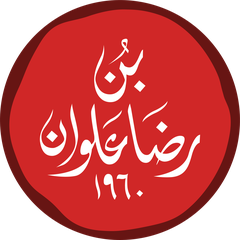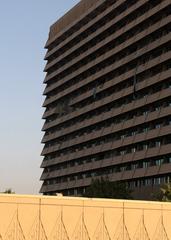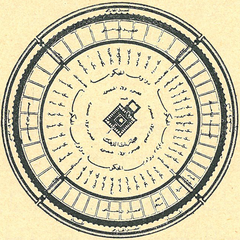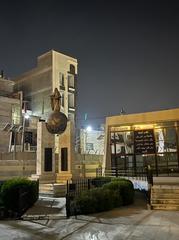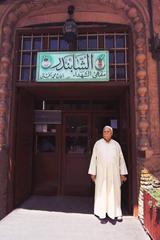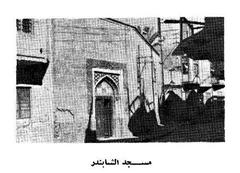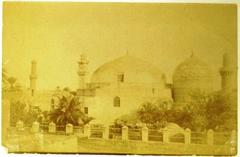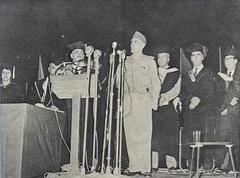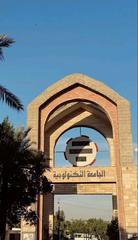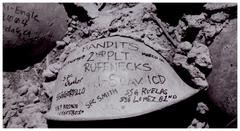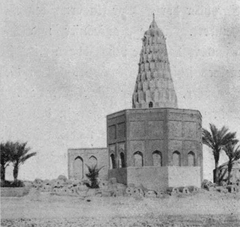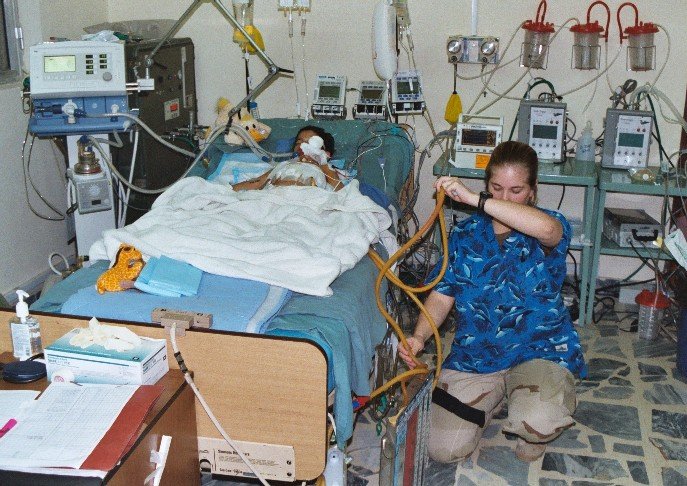
Ibn Sina Hospital Baghdad Visiting Hours, Tickets, and Visitor Guide
Date: 14/06/2025
Introduction
Baghdad, the storied heart of Iraq, stands as a testament to the region’s rich legacy in medicine and mental health. At the center of this narrative is Ibn Sina Hospital, located within the city’s International Zone. Named after the renowned Persian polymath Avicenna (Ibn Sina), the hospital reflects Iraq’s enduring commitment to healthcare, resilience through conflict, and ongoing modernization efforts. This comprehensive guide provides essential information for prospective visitors, including visiting hours, access protocols, historical background, and practical travel tips—enhancing your understanding of the hospital’s profound societal and cultural significance.
Table of Contents
- Introduction
- Historical Foundations: Mental Health Care in Baghdad
- Ibn Sina Hospital: Evolution and Role
- Visiting Ibn Sina Hospital: Hours, Tickets, and Access
- Nearby Baghdad Attractions and Travel Tips
- Cultural Protocols and Visitor Etiquette
- Frequently Asked Questions (FAQ)
- Conclusion
- References
Historical Foundations: Mental Health Care in Baghdad
Baghdad’s role in the development of mental health care is globally significant. As early as 705 CE, the city was home to the world’s first mental hospital, established during the Islamic Golden Age. Figures like Al-Razi and Ibn Sina championed scientific inquiry and humane treatment, laying the groundwork for modern psychiatry (PMC Article on Mental Health History). These early institutions were centers of healing and scholarship, attracting students and physicians from across the Islamic world and Europe.
By the mid-20th century, mental health services in Iraq began to re-emerge following periods of stagnation. Key developments included the establishment of principal mental hospitals—Al-Rashid (later Ibn Rushid State Hospital) and Al-Rashad—and the integration of mental health services into general hospitals (PMC Article on Mental Health History).
Ibn Sina Hospital: Evolution and Role
Founding and Early Years
Established in 1964 by four Iraqi doctors—Modafar Al Shather, Kadim Shubar, Kasim Abdul Majeed, and Clement Serkis—Ibn Sina Hospital began as a private facility dedicated to high-quality healthcare (Wikipedia; ibnsinahospital.iq). Its namesake, Avicenna, is recognized for his pioneering contributions to medicine and philosophy.
State Appropriation and Regime Era
In 1974, the hospital was nationalized and served as an exclusive facility for Saddam Hussein’s regime and Baath Party elites. Notably, high-profile figures such as Uday Hussein received treatment here (Wikipedia; dbpedia).
Wartime and US Occupation
Following the 2003 Iraq War, the hospital became the largest US military hospital in the country, situated within the International (Green) Zone. It treated American soldiers, Iraqi civilians, and even insurgents, managing up to 300 trauma cases monthly (NYT). The hospital’s impartial trauma care became emblematic of humanitarian medical ethics during conflict (Wikipedia).
Postwar Modernization
In 2009, Ibn Sina Hospital was returned to Iraqi government control and underwent significant upgrades in infrastructure, equipment, and staff training (ibnsinahospital.iq). Today, it is a public teaching hospital, fostering international collaboration and medical education.
Visiting Ibn Sina Hospital: Hours, Tickets, and Access
Visiting Hours
Ibn Sina Hospital is an active medical facility. Visiting is generally limited to family members of patients and official delegations. Standard visiting hours are weekdays from 9:00 AM to 4:00 PM, though all visits must be arranged in advance with hospital administration.
Tickets and Entry Requirements
- Admission Fee: There is no ticket or admission fee for visiting the hospital.
- Access Restrictions: The hospital is within the International Zone, a highly secure area. Casual tourism is not permitted. Only those with official business, medical appointments, or research purposes may enter.
- Security Clearance: All visitors require prior security clearance, usually coordinated through the hospital, Ministry of Health, or an official sponsor.
- Identification: A valid passport, visa, or national ID is required at security checkpoints.
Guided Tours
Public tours are not available. Researchers or official delegations may request access by contacting the Ministry of Health or hospital administration directly.
Nearby Baghdad Attractions and Travel Tips
While access to Ibn Sina Hospital is restricted, authorized visitors to the International Zone can explore several nearby sites:
- Republican Palace: Historic seat of Iraqi government.
- Iraq Museum: Renowned collection of Mesopotamian artifacts.
- Al-Mustansiriya School: One of the world’s oldest universities.
- Al-Mutanabbi Street: Famous book market and cultural hub.
- Tigris River Promenade: Scenic views and local eateries.
Travel Tips:
- Arrange official transportation—public transit and ride-sharing do not access the International Zone.
- Confirm security conditions and advisories before traveling.
- Book accommodations in reputable hotels in central Baghdad if not lodging with an official entity.
Cultural Protocols and Visitor Etiquette
- Dress Code: Modest, conservative attire is required. Women should wear long skirts or trousers and bring a headscarf; men should wear long trousers and sleeved shirts.
- Behavior: Maintain a quiet, respectful demeanor. Loud conversations, public displays of affection, and unsolicited photography are prohibited.
- Photography: Not permitted within the hospital or most of the International Zone due to security concerns.
- Language: Arabic is primary; some staff speak English. Arrange for an interpreter if needed.
- Accessibility: The hospital has ramps and elevators, but some areas may not meet international accessibility standards. Notify staff in advance if assistance is required.
Frequently Asked Questions (FAQ)
Q: Can tourists visit Ibn Sina Hospital?
A: Only visitors with official business or approved arrangements may enter. Casual tourism is not permitted.
Q: Are guided tours or public tickets available?
A: No public tours or tickets are available. Special visits may be arranged for researchers or officials with prior approval.
Q: What are the visiting hours?
A: Generally, weekdays from 9:00 AM to 4:00 PM, by arrangement only.
Q: Is the hospital wheelchair accessible?
A: Yes, with ramps and elevators, but notify staff if you need assistance.
Q: What is the best way to access the hospital?
A: Through authorized transportation, arranged in advance by sponsors, embassies, or the hospital itself.
Conclusion
Ibn Sina Hospital is more than a medical facility; it is a mirror of Baghdad’s turbulent yet resilient history. From its roots as a premier private hospital, through its service during wars and political upheaval, to its current status as a public teaching institution, the hospital embodies the perseverance and humanitarian spirit of Iraqi healthcare. While access is highly regulated, those able to visit are afforded a rare glimpse into both the city’s medical heritage and its journey towards recovery and modernity.
Visitors are encouraged to respect all protocols, consult official resources, and approach their visit with cultural sensitivity and awareness of local customs. For further updates, personalized travel guides, and detailed local insights, download the Audiala app and follow our social media channels.
References
- Mental health in Iraq: history and current situation, 2019 (PMC Article on Mental Health History)
- The hospital that treated friend and foe, 2009 (The New York Times Archive)
- Ibn Sina Hospital Official Website, 2025 (ibnsinahospital.iq)
- Ibn Sina Hospital (Baghdad) Wikipedia, 2025 (Wikipedia)
- Hospital Construction and Maintenance in Baghdad, FacilitiesNet, 2008 (FacilitiesNet)
- Additional travel information: Travel.gc.ca, UK FCDO, Beyond the Bucket List
